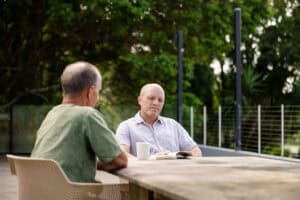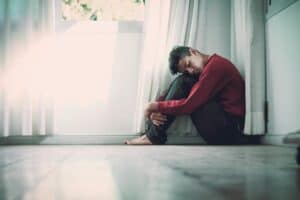Clinical depression is an illness and a medical condition. It significantly affects the way someone feels, causing a persistent lowering of mood – often in the form of feeling very sad, scared or withdrawn. It interferes with the way a person goes about their everyday lives and can make it hard to cope.
Depression is often accompanied by a range of other physical and psychological symptoms that can interfere with the way a person is able to function in their everyday life. The symptoms of depression generally react positively to treatment.
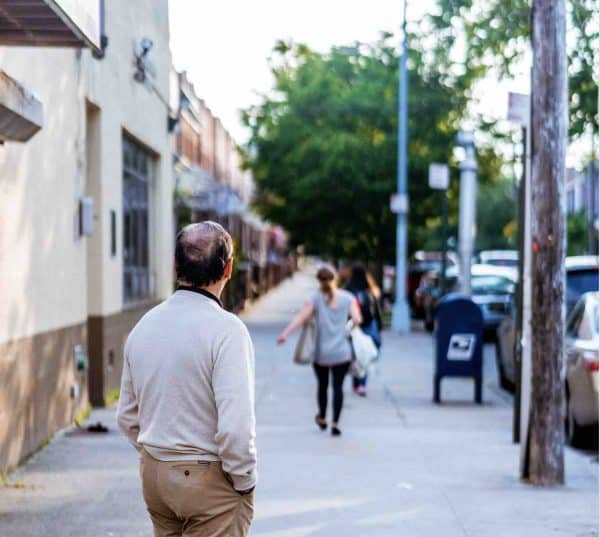
What does a panic attack feel like?
There are a number of possible causes of depression. Some people have a genetic predisposition to depression, which can then be triggered by a stressful situation in life.
Depression can also:
Be a reaction to a distressing situation like loss or stress (reactive depression). Some women experience depression following the birth of a child (post-natal depression).
Be part of an illness like bipolar disorder in which the person experiences extreme moods – very high and very excited or very low and depressed.
Sometimes occur without any obvious trigger – sometimes the person may be affected so much that they experience the symptoms of psychosis and are unable to distinguish what is real.
Affect children and teenagers – this can show itself in different ways to depression in adults, and they are best helped by a doctor who is a specialist in this area.
What Does It Really Mean?
Depression is more than feeling a little sad, it is a medical condition that can have a devastating effect on the life of someone affected by it. It can deprive them of the ability to take pleasure or interest in things, making them feel cut off from the world and alienated from family and friends. Often, everything in life is seen in a negative way.
Once diagnosed, for the great majority of people Depression is a very treatable condition (SANE). Understanding that these symptoms may be signs of a medical condition which can be successfully treated, is a first big step in fighting back against Depression (health.org).
What Are the Symptoms of Depression?
Depression has a variety of symptoms and will affect everyone in different ways.
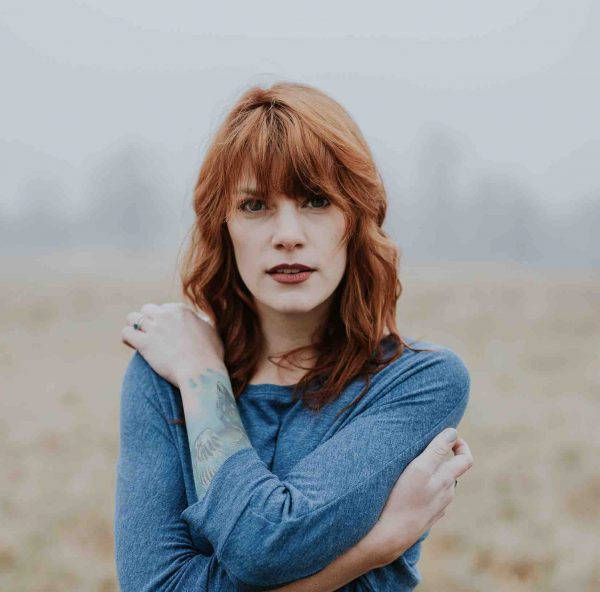
Symptoms include:
Feeling extremely sad or tearful
Feeling emotionally flat or numb
Disturbances to normal sleep patterns
Loss of interest and motivation
Feeling worthless or guilty
Loss of pleasure in activities
Anxiety or consistent shortness of breath
Changes in appetite or weight
Loss of sexual interest
Physical aches and pains
Impaired thinking or concentration.
You may be thinking:
‘my problems are too difficult to solve’
‘life is too hard’
‘everything’s going to go wrong’
‘I’m no good’
‘it’s all my fault’.
Perhaps you’re having changes in:
Motivation
Ability to find enjoyment and pleasure in things
Quality of sleep (sleeping a lot, waking up a lot, or insomnia)
Appetite or weight
Interest in sex
Concentration and remembering things
Drinking or use of drugs.
What Are the Symptoms of Depression?
People who have experienced Depression describe it as feeling far away inside yourself; feeling as though your senses have been deadened, finding great difficulty doing things which used to be easy or enjoyable. Even something as straightforward as getting up in the morning and having a shower can seem impossibly challenging.
Although many people with depression feel sadness, it feels much more severe than emotions that come and go in response to life events. The symptoms of depression can last for months or years and can make it difficult or impossible to carry on with daily life. It can disrupt careers, relationships, and daily tasks such as self-care and housework.
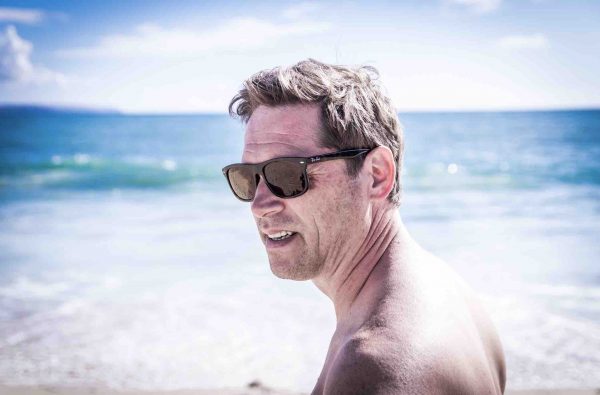
It may feel like:
There’s no pleasure or joy in life
A person with depression may not enjoy things they once loved and may feel like nothing can make them happy.
Concentration or focus becomes harder
Making any kind of decisions, reading, or watching television can seem taxing with depression because people can’t think clearly or follow what’s happening.
Everything feels hopeless, and there’s no way to feel better
Depression may make a person feel that there’s no way ever to feel good again.
Self-esteem is often absent
People with depression may feel like they are worthless or a failure at everything. They may dwell on negative events and experiences and be unable to see positive qualities in themselves.
Sleeping may be problematic
Falling asleep at night or staying asleep all night can feel nearly impossible for some people with depression. A person may wake up early and not be able to go back to sleep. Others may sleep excessively, but still wake up feeling tired or unrefreshed, despite the extra hours of sleep.
Energy levels are low to non-existent
Some people feel like they can’t get out of bed, or feel exhausted all the time even when getting enough sleep. They may feel that they are too tired to do simple daily tasks.
Food may not seem appetising
Some people with depression feel like they don’t want to eat anything, and have to force themselves to eat. This can result in weight loss.
Food may be used as a comfort or coping tool
Although some people with depression don’t want to eat, others can overeat and crave unhealthy or comfort foods. This can lead to weight gain.
Aches and pains may be present
Some people experience headaches, nausea, body aches, and other pains with depression.
Many people mistakenly believe that being depressed is a choice, or that they need to have a positive attitude
Friends and loved ones often get frustrated or don’t understand why a person can’t “snap out of it.” They may even say that the person has nothing to be depressed about.
Depression is a real mental illness
Those who have depression cannot simply decide to stop feeling depressed. Unlike typical sadness or worry, depression feels all-consuming and hopeless.

What Are the Different Types?
Major depression
Major depression is sometimes called major depressive disorder, clinical depression, unipolar depression or simply ‘depression’, and is the most common form of depression (Beyond Blue). As noted above, symptoms of depression interfere with all areas of a person’s life, including work and social relationships. Depression or melancholia, can be described as mild, moderate or severe.
Melancholia
This is the term used to describe a severe form of depression where many of the physical symptoms of depression are present. One of the major changes is that the person starts to move noticeably more slowly (Black Dog Institute). They’re also more likely to have a depressed mood that is characterised by complete loss of pleasure in all activities, objects or forms of sustenance.
Antenatal and postnatal
Women are naturally more exposed to an increased risk of depression during pregnancy (known as the antenatal or prenatal period) and in the year following childbirth (known as the postnatal period).
The causes of depression during this period are often complex and the result of a combination of factors. In the days immediately following birth, many women experience ‘baby blues’, or general stress adjusting to pregnancy or a new baby (healthdirect.org). These occur in 80 percent of women, but are different from depression.
Depression is longer lasting and can affect not only the mother, but her relationship with her baby, the child’s development, the mother’s relationship with her partner and with other members of the family.
Almost 10 per cent of women will experience depression during pregnancy. This increases to 16 per cent in the first three months after having a baby.

Cyclothymic disorder
Cyclothymic disorder is often described as a milder form of bipolar disorder. The person experiences chronic fluctuating moods over at least two years, involving periods of hypomania (a mild to moderate level of mania) and periods of depressive symptoms, with very short periods (no more than two months) of normality between (Beyond Blue). The duration of the symptoms are shorter, less severe and not as regular, and therefore don’t fit the criteria of bipolar disorder or major depression.
Personal Stories of Depression
Jacqui
Anxiety & Depression
“So there has to be something out there that’s going to give me the tools I need to approach life in a different way. Where I will be a better mom. The mom that my child deserves.”
Life was, to sum it up, pretty crap. I had dug a hole that was really deep. Was diagnosed with depression at the age of 16, and picked up anxiety along the way somewhere. And was just not in a great place. Yeah. I’d turned to emotional eating after having severe postnatal depression, and would binge drink somewhere along the lines as well. And yeah, really didn’t see my own value.
The self-esteem was non-existent to a point where I really would just question, why am I here?
It felt like I didn’t belong. It was a mistake for me to have been born, and everything I did and the way I’d go about anything was always wrong. And I was just a muck up. So I would torture myself internally, with the way I thought, and with feeling.
And I just … I really did not like who I was turning into, even more so when I was starting to see signs of anxiety in my own son. That was what really got through to me of saying, okay, I need to be able to help him. But I’m not able to do that when I can’t even work through my own stuff. So there has to be something out there that’s going to give me the tools I need to approach life in a different way.
Where I will be a better mom. The mom that my child deserves.
Once I came here, the day one, gosh. It certainly is overwhelming. It’s a daunting experience to be on my … well, for me, on my own. I was petrified. The thing that I’d picked up along my way was that I couldn’t show how I actually felt. So, I remember when my sister-in-law left, I started to cry. Then I realised, it was lunchtime. I have to go and face all these people. And I don’t want them to know what I’m going through, so I just pulled it all back, and went in as if it was fine. And I rang my husband in tears and was like, I just want to come home. I’d had enough. It was information overload. But I persevered because I knew I owed it to myself to finish what I’d started.
The reason I didn’t leave even though I felt like it, and I knew it was important to stay, was because there was still more that I needed to gain.
If I had have just gone then I would have only been running away from it, instead of facing it head on and actually dealing with it. So, I couldn’t have taken away what I’ve got with me today if I’d left early.
My personal growth was dramatic. In the way that I … I can honestly sit here and say that I’m 100% worthy. I always have been, I always will be. Nothing can take that away from me. It’s my birth right, and it’s a fantastic feeling to know. It has changed so much where I can’t say that I’ll be 100% cured, but I know my triggers now. I can look out for when those voices start back, and be able to go, hang on. I’m looking through whatever lens it may be here, and then do what is known as an upgrade. So it won’t hold me back any longer. I move forward now.
Yeah, I am so pleased that, now that I’ve been through the experience, I can return home a different person. My family will notice for sure when I walk through the door, just how much I have changed. And see it in me. And now I’ve got the tools with me that I can start spreading. I’ll start with my family for sure. And while raising young children, I think this has yeah, been an amazing opportunity.

Patrick
PTSD & Depression
“Waking up at night in pain. Trying to deal with that, and then not having a good night’s sleep. Having problems with flashbacks to the accident and other more unpleasant intrusive thoughts became more troublesome.”
February this year I had quite a serious motorcycle accident, where I had a heap of injuries that included a fractured pelvis and some spinal injuries and fractures in my lower limbs. That was sorted out in a month in hospital, but I’ve needed ongoing surgery and had a lot of problems with persisting pain. What they’re calling in these days … they call it post-traumatic stress disorder, from the accident. It’s been causing me a number of problems.
The motorcycle accident was quite a serious one.
There was quite a significant concern that I could have died from it. I spent a month in hospital, then 12 weeks where I wasn’t able to put any weight … I was wheelchair bound, effectively. After I got mobile again and things were happening, and even returning to work part-time, it was dealing with the pain. Waking up at night in pain. Trying to deal with that, and then not having a good night’s sleep. Having problems with flashbacks to the accident and other more unpleasant intrusive thoughts became more troublesome.
That’s when I thought it would be a good idea to … I felt there was an opportunity to come here in a time that suited me. I’m really glad I did that.
I’d come here twice before, more than three years ago. Three or four years ago, I suppose. At that time I had bowel cancer and was busy trying to come to terms with that.
I think that one of the things … why it’s been valuable the third visit, and it came after the second visit, is it really doesn’t hurt for any of us to have stuff repeated. Being reminded of stuff and having reinforced the importance of continuing to do some of the strategies that you’ve learned here when you go home, and the importance of continuing to do that … I think I found that reinforced and I think I’ll be in a position to continue to do that when I do get home, to help me deal with what’s going to be an ongoing problem for a while.
The staff here have been fantastic, from the time of ringing up to check on my availability and what might be appropriate to me, and that follow up phone call.
The program that was designed … I must confess, I didn’t understand all the different names of what was on offer product-wise, but it certainly was … what was designed for me, I felt was individualised in a very good way to suit my particular problem.
I think what has been really valuable for me was the holistic approach, with looking after your body and your mind. But also dealing with patterns of thinking and the way you’re behaving, that are starting to get into bad behaviours … be that alcohol or overusing drugs or whatever happens to be some of the consequences of that chronic pain. This is a good place to be dealing with that.
I’d have no hesitation in recommending for people with a wide range of problems, it would be better to … I’d love to be able to stay longer. It doesn’t fit in just at the moment. Even the time that I’ve spent here, I’ve found very valuable. It’s helped dramatically with me dealing with the problems that I’ve been having.

Kris
Addiction & Depression
“I guess life moves along pretty quick and you do your best to roll along with it, with what you know. But what I knew wasn’t exactly working for me and I guess I was taking drugs and drinking to deal with stress.”
I’ve spent probably the last 15 years or so, half my life, doing drugs, alcohol, stuff like that. 2012, was not a good year for me. I ended up, before Christmas, separated from my wife and two kids. Been together 10 years so it’s was a rocky two and a half months from there. Was feeling pretty down in the dumps when I decided to come here.
Basically what was going on for me; I’ve run a business since I was 18. My life was pretty stressful before I had two kids, which I had back to back boys. I guess life moves along pretty quick and you do your best to roll along with it, with what you know. But what I knew wasn’t exactly working for me and I guess I was taking drugs and drinking to deal with stress.
What this place has sort of shown me is there’s a better way to deal with those stresses and can basically eliminate that from your life. Which then eliminates the need to do drugs and stuff to deal with those things.
I guess for a while a lot of family and friends were telling me that I did need to do something different, go somewhere to sort of fix my life up, if you will. I wasn’t listening. I’m a pretty stubborn person. Doesn’t matter how many times someone tells me something, if I don’t believe it myself, it’s not true. And it’s actually born out of necessity to come here. I’m very glad I came.
I guess when I came here, I was pretty down in the dumps. This place has made it really easy, not to forget about those things, but to realise that there’s a bigger picture.
I guess I still have my sadness when I think about my boys and that I’m here and not over there with them, being a dad. But all in all, I think the benefits for yourself outweigh any of those emotions.
Since I’ve been here the organic food, the exercise, all the health-based stuff, I feel a lot fitter and healthier. I look better in a week since I’ve been here. And that’s obviously helps to build you up, makes you feel good about yourself, which is all part of it.
If I’ve been here a week and sort of feeling like this, I’m excited to see how I’ll feel another three weeks in. If I can be showing this much in a week, and feel this healthier in a week, then another three weeks on top of that can only … I’m interested to see where it goes and where it takes me.

Palladium Private
The stories above shed light on the hardships that many of our clients experience daily at Palladium Private. Our retreat seeks to mitigate the effects of depression through immersive therapy – helping to create value around the joys of all that life, love and opportunity have to offer.
Our program is specifically designed for people who are suffering from depression, anxiety, PTSD and/or alcohol/drug dependency. We appreciate that many of these conditions are non-exclusive, and can combine to make it hard for the individual to cope.
The Palladium Program commences with a residential stay of between two and five weeks. During this time, we are committed and determined to make long term permanent changes, for good in people’s lives.
This requires the same level of commitment from everyone that attends our programs.
For long term change to begin, we customise daily schedules for you and limit the distractions with the outside world. We teach you how to really understand the core thinking behind stress and emotional symptoms leading to unwanted behaviour like addiction, depression and anxiety.
Find out more about the Palladium Private journey here.

